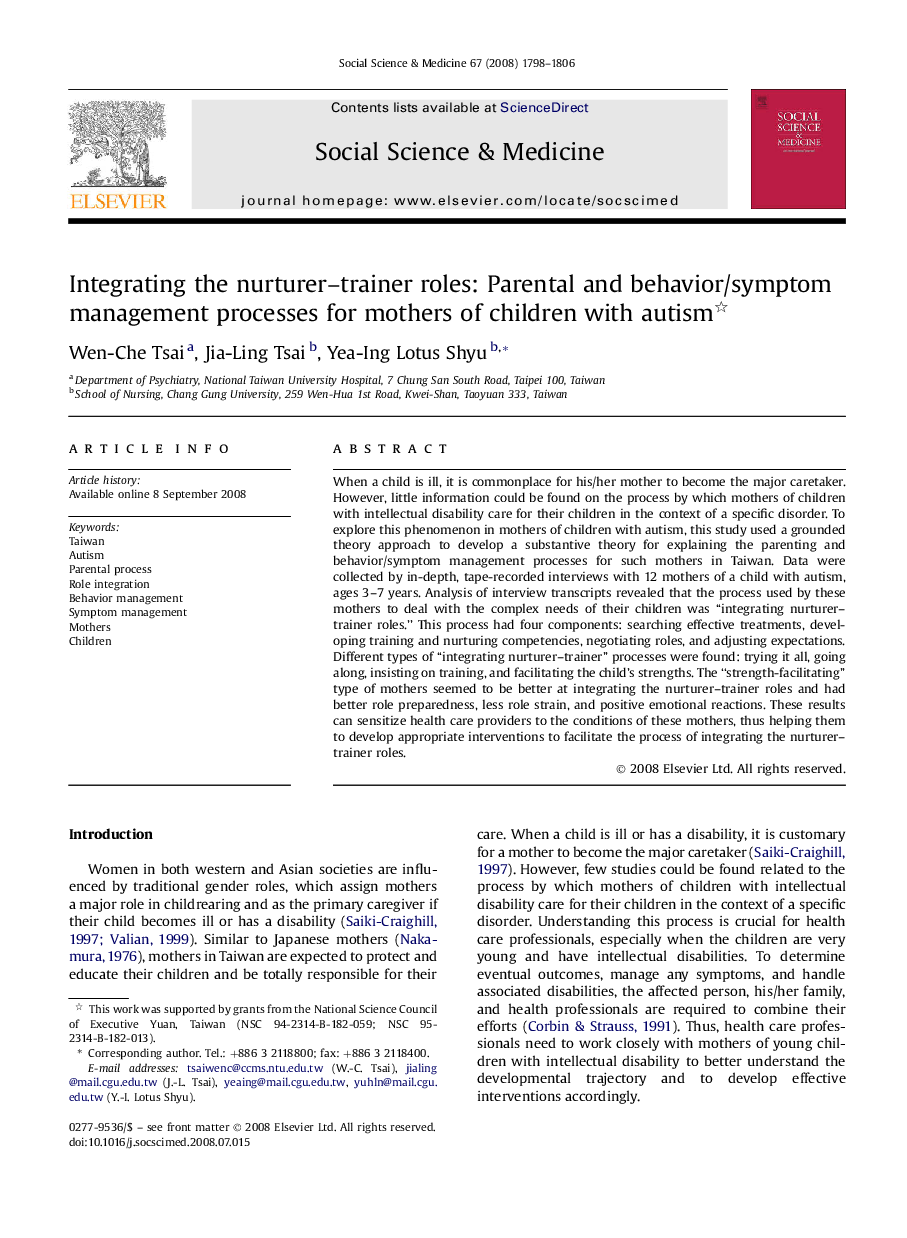| Article ID | Journal | Published Year | Pages | File Type |
|---|---|---|---|---|
| 953513 | Social Science & Medicine | 2008 | 9 Pages |
When a child is ill, it is commonplace for his/her mother to become the major caretaker. However, little information could be found on the process by which mothers of children with intellectual disability care for their children in the context of a specific disorder. To explore this phenomenon in mothers of children with autism, this study used a grounded theory approach to develop a substantive theory for explaining the parenting and behavior/symptom management processes for such mothers in Taiwan. Data were collected by in-depth, tape-recorded interviews with 12 mothers of a child with autism, ages 3–7 years. Analysis of interview transcripts revealed that the process used by these mothers to deal with the complex needs of their children was “integrating nurturer–trainer roles.” This process had four components: searching effective treatments, developing training and nurturing competencies, negotiating roles, and adjusting expectations. Different types of “integrating nurturer–trainer” processes were found: trying it all, going along, insisting on training, and facilitating the child's strengths. The “strength-facilitating” type of mothers seemed to be better at integrating the nurturer–trainer roles and had better role preparedness, less role strain, and positive emotional reactions. These results can sensitize health care providers to the conditions of these mothers, thus helping them to develop appropriate interventions to facilitate the process of integrating the nurturer–trainer roles.
